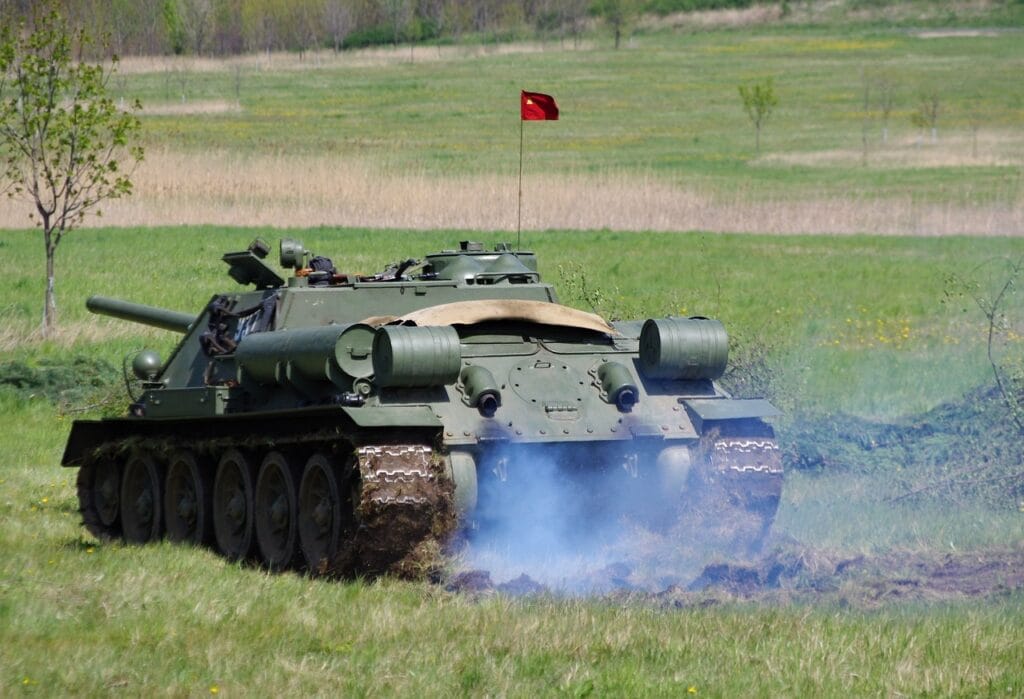Last weekend, former FOX News host, Tucker Carlson, released an interview with Russian President, Vladimir Putin and everyone has been talking about it. While the interview opened the flood gates of political commentary—which I’m sure you’ve already had enough of—the obvious cultural factors are the most interesting and overlooked part of the interview, and have inspired quite a few memes too.
Just a few minutes in, Carlson asks why Putin invaded Ukraine, and Putin launches into a history lesson beginning with the founding of the Rus in the 9th century. The immediate confusion that appears on Carlson’s face as Putin describes long-dead kings in remarkable detail is a tell-tale sign: this miscommunication is deeper than merely personal or political, it is truly a cultural disconnect.
If you’re interested in how cultural differences play out between the US host and the Russian president, here’s a quick run-down!
Countries with a long history like Russia tend to see what was rather than what is, and use that history to inform what they think the present should be like. These glory days are not just sentimental but authoritative in many ways—because they are traditional, they should be valued. While every medieval detail of the story might not be relevant, establishing that Ukraine evolved from Russian lands and people is of chief importance to Putin (whether you believe his story or not).
Carlson’s ignorance of this aspect of Russian culture left him unprepared to critically engage with Putin’s account of history—an area where Putin expected to head off Carlson’s concerns by providing historical records from the Kremlin’s archives. After presenting the papers, Putin appears pleased with his convincing evidence, but Carlson has been stuck for the past 8 minutes trying to figure out why any of this is relevant. Some have criticized Carlson for allowing Putin to share his account of history undisputed, this is not intentional—Carlson simply did not expect to need to fact check the Russian leader on details of Polish occupation in the late medieval period!
Though Putin clearly did his research on Tucker Carlson, mentioning his college history major and failed application to the CIA, the news host also did research on Putin’s prior statements about Ukraine. Unfortunately for him, this research was scarcely used in the interview at all, largely owing to Putin’s preoccupation with history lessons. But even in this, Carlson missed another major issue in his research: the role of a tsar in Russian culture.
Andrei Zorin, a cultural historian at the University of Oxford argues that in many ways, the Russian people still long for a great tsar. To become this, he adds, “the Tsar has to prove he’s the true one.” In Putin’s own account of Russian rulers, he highlights several great leaders who restored former lands to Russian control. Amidst societal ebb and flow, reclaiming Russia’s lands is what separates the great Russian leaders from the crowd—and Putin wants to make sure he’s remembered as one of the best.
On several occasions, Carlson asks Putin why he only recently started claiming that Ukraine’s territory belonged to Russia, but to no avail. Had he framed his question relative to the history lessons Putin provided, perhaps he would have gotten an answer.
More importantly, Carlson’s lack of understanding Putin’s cultural background hindered the basic goal of the interview: clear communication between Putin’s world, where Russia has the right to invade Ukraine, and the world of US viewers, where Russia is simply trying to take whatever it can get away with.
Again, I am not arguing one political stance or another, but instead showcasing how (1) a lack of culturally-informed (a.k.a. localized) preparation can totally derail productive conversation and (2) how accurate analysis depends on a deep understanding of cultural factors that create the end result.
Especially when the stakes are as high as they are, it is crucial that we understand both sides’ cultural backgrounds and how they play out in political discussions.

